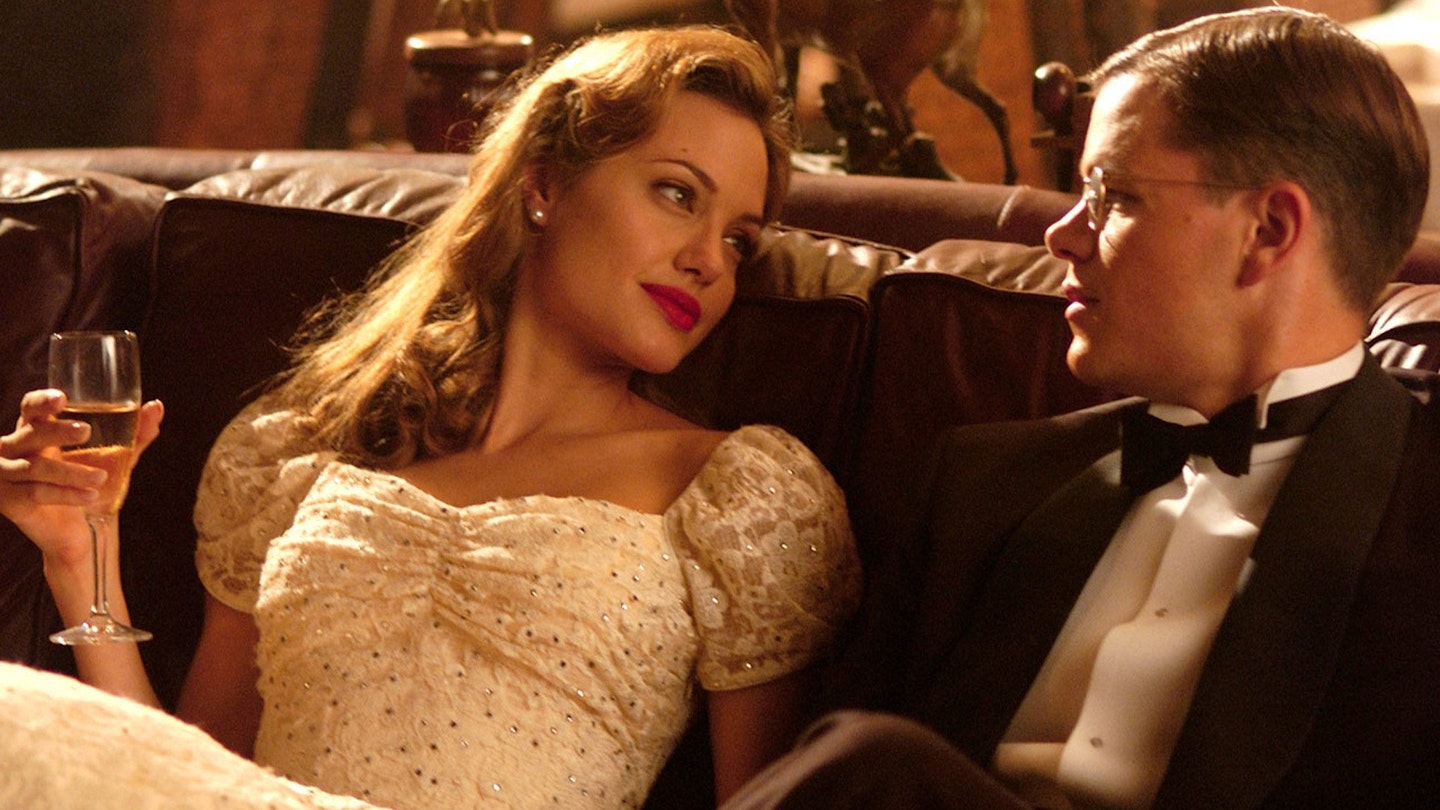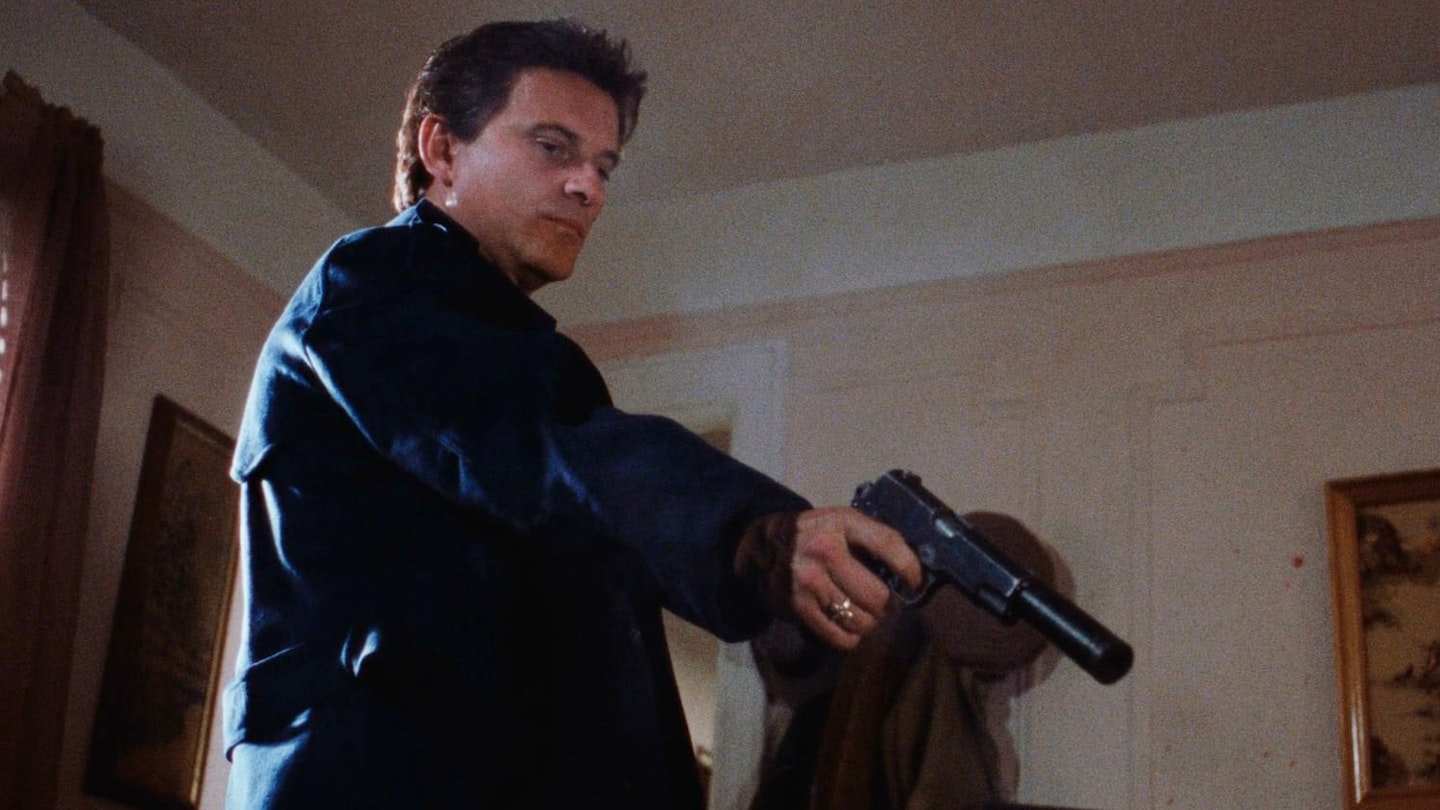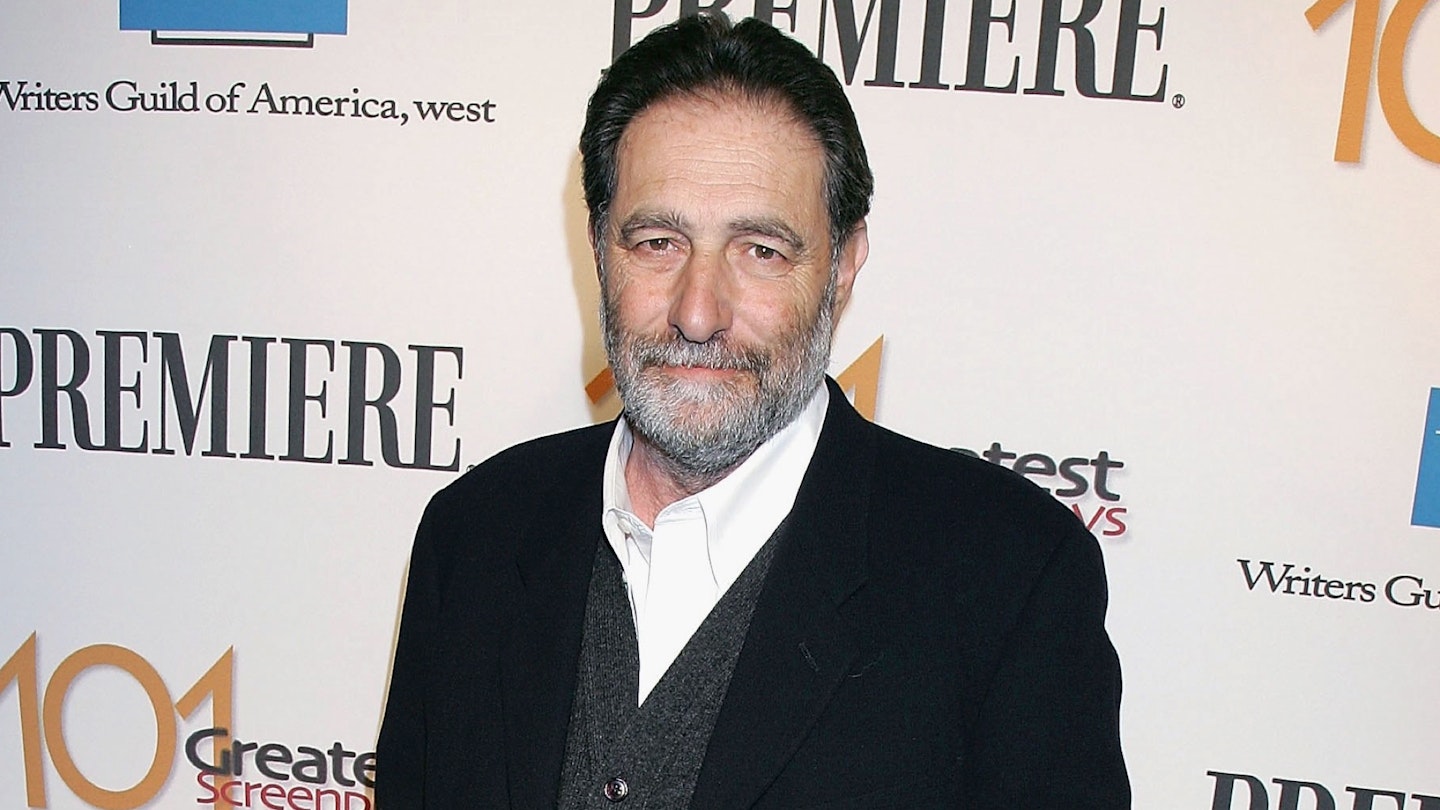You can’t fault Robert De Niro The Director for a lack of ambition. Fourteen years ago, he made his debut with A Bronx Tale, just the sort of small-scale, intimate, script- and performance-driven picture you might expect from a man hailed by his peers as the actors’ actor. For a while, it seemed that — like Charles Laughton (The Night Of The Hunter) or Jack Lemmon (Kotch) — De Niro was one of those folks who rack up a single directorial credit just to see what it was like, and then go back to a busy career doing something else. Now, with De Niro The Actor settled into a rut of lazily okay send-ups of his previous intensity (the Analyze... and Meet The... films) and forgettable, issue-heavy thrillers (City By The Sea, 15 Minutes), De Niro The Director returns after a ten-year development period with a second film that is a significant step up in scale from A Bronx Tale.
The Good Shepherd, in which De Niro takes only a vivid acting cameo as the patriotic but ethical General Bill Sullivan, is the kind of Big Picture, using a great chunk of 20th century history to cast a cold eye on America, which often turns up about the time that Academy Award nominations are being solicited. Scripted by Eric Roth (Forrest Gump, The Insider, Munich) and based on a ton of research, this chronicles the beginnings of the Central Intelligence Agency, from its origins in World War II as the Office Of Strategic Services, through expansion as America engages in a Cold War with the Soviet Union that is often fought behind the scenes in Third World countries as the superpowers jockey for position. The tale is lightly fictionalised, with pseudonyms (Sullivan, for instance, stands in for the real-life General ‘Wild Bill’ Donovan), composite characters (Billy Crudup’s British spy combines several similar figures) and made-up folks interacting with real events (here, the Bay Of Pigs invasion fails through a single intelligence leak rather than amateur tactics and White House hesitation).
The central figure, loosely based on long-term spooks James Jesus Angleton and Richard Bissell, is preppie idealist Edward Wilson (oddly, the real-life Angleton was more complex and flamboyant than his movie stand-in). The film revolves around a very buttoned-down Matt Damon as a spy a world away from Jason Bourne, who tries hard with cheek-twitches and wounded looks to lend inner life to a character known for not giving anything away. In 1961, Edward worries through a personal and professional quandary after the disastrous attempted counter-coup against Castro, poring over a blurry snapshot and a tape-recording as he tries to find out who passed on the plans to the Reds. Meanwhile, flashbacks take us through Edward’s ascent in the Secret Service, which begins at Yale when he is recruited (while taking off his drag after giving an uncharacteristically flouncy performance as Poor Little Buttercup in HMS Pinafore) into the famously hush-hush Skull And Bones Society, which turns out to be the talent pool from which US intelligence recruits its big thinkers.
Even before he’s officially a spy, Edward snoops on a pro-Nazi, gay poetry professor (Michael Gambon, defaulting to his Singing Detective trenchcoat slyness) as a favour for an FBI man (Alec Baldwin, in one of his trademarked sinister-but-jovial cameos). After brief time-outs for romance on the beach with nice deaf girl Laura (Tammy Blanchard) and a hasty marriage to the high-born Clover (Angelina Jolie, miscast in a role for which Kate Bosworth would be overqualified), Edward gets into the Office of Strategic Services in London and Berlin, acquiring a proletarian sidekick (John Turturro) who occasionally handles the fist-in-the-face business that’s a necessary adjunct to the paper-shuffling and rumour-mongering which is the usual business of the Agency. In the post-War scramble for Nazi scientists, Edward learns a hard lesson about his new enemies, and begins a John le Carré-style, decades-long contest of wits with Soviet spymaster ‘Ulysses’ (Oleg Stefan).
Like too many films about exclusively male pursuits, this feels obliged to have womenfolk pop in and nag about being neglected. The unhappy marriage to a socially prominent beauty is a straight lift from le Carré’s George Smiley, and pretty much dead space in the movie despite Jolie’s best efforts. Clover is supposed to provide an outsider’s viewpoint on the secret world, but there are far more telling, less blatant reminders from De Niro’s own character as he turns up in small scenes, more and more crippled, to stress that being a patriot is no excuse for the utter ruthlessness and frankly self-serving behaviour (epitomised by Establishment sneak William Hurt) that becomes increasingly endemic as the Cold War grinds on. The last third of the film is dominated by an unbelievable, not-very interesting plot about Edward Junior (Eddie Redmayne), the neurotic son who whines his way into the Agency, is clearly bad news for everyone and does more harm to American foreign policy than the actual traitors.
From being in The Godfather Part II, 1900, Once Upon A Time In America and GoodFellas, De Niro has picked up a knack for broad-canvas historical drama, and this is one of surprisingly few American films to deal not with up-from-the-gutter toughs but the hereditary, Ivy League power elite who actually run the country. When Edward enters into a shady deal with a mobster (a friendly cameo from Joe Pesci), the crook harps on about the cultural vitality of Italian, Irish and black Americans, and asks what the blue-bloods have in place of family, music or church. The pale Yalie snaps, “The United States of America — the rest of you are just visiting.”
There’s a lot of fascinating history here, and Roth and De Niro make a fair fist of retelling it through one man’s story — but for such a long film, it’s surprisingly shallow. Apart from Damon, who keeps everything close to his chest, most of the rest of the excellent cast are aboard only for a few scenes apiece and basically do ‘turns’, with only Blanchard, as the girl Edward should have married, really coming over as an actual, live person. As a Cold War story, it’s mostly men in rooms gloomily plotting, with the occasional severed finger in a coffee can to remind us that other agents are getting killed while all this is going on, and — though it’s all very credible and serious — you can’t help wishing sometimes that this movie was on the ground where the action is.




